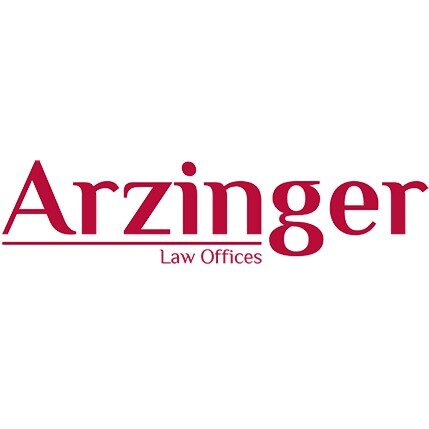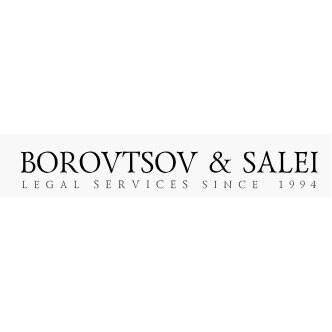Best Landlord & Tenant Lawyers in Belarus
Share your needs with us, get contacted by law firms.
Free. Takes 2 min.
Free Guide to Hiring a Real Estate Lawyer
Or refine your search by selecting a city:
List of the best lawyers in Belarus
About Landlord & Tenant Law in Belarus
The Landlord & Tenant laws in Belarus are primarily governed by the Housing Code of the Republic of Belarus, which outlines the rights and responsibilities of both landlords and tenants. These laws are designed to create a balanced relationship between parties, ensuring that rental agreements are fair and disputes are resolved legally. Additionally, contracts often include specific terms and conditions tailored to the unique demands of individual arrangements, always adhering to national legislation.
Why You May Need a Lawyer
Engaging a lawyer knowledgeable in Landlord & Tenant issues in Belarus can be crucial in several scenarios. Common situations include disputes over lease terms, such as rent increases or security deposits, evictions, or damages and repairs. A lawyer can help interpret complex legal language, mediate disputes, represent you in court, and ensure your rights are protected according to the latest legislative changes.
Local Laws Overview
The key aspects of local Landlord & Tenant laws in Belarus include the necessity for written rental agreements, guidelines for unforeseen property maintenance, and the legal procedures for tenant eviction. The law also covers notice periods for termination of tenancy by both parties and dictates measures for handling security deposits. Landlords are typically required to register tenancy agreements, and tenants should be aware of their obligations, such as property upkeep and timely rent payments.
Frequently Asked Questions
What are my rights as a tenant in Belarus?
Your rights include living in a habitable property, having repairs completed timely by the landlord, and having a clear outline of the rental contract, among others.
Can the landlord increase rent during the lease term?
Generally, rent increases during the lease term must be agreed upon by both parties or be stipulated in the original contract.
What should be included in a rental agreement?
A rental agreement should include information such as the rental amount, lease duration, rights and responsibilities of both parties, and any conditions for lease renewal or termination.
Under what circumstances can a tenant be evicted?
Tenants can be evicted for non-payment of rent, breach of contract terms, or misuse of property. Legal procedures must be followed for eviction.
Who is responsible for repairs in a rented property?
The landlord is typically responsible for major repairs, while the tenant must handle minor maintenance unless otherwise stated in the lease.
Is subletting allowed?
Subletting is only allowed if it is expressly permitted in the rental agreement and the landlord consents to it.
Are utilities included in the rent?
This depends on the terms of the rental agreement. Clarification on this point should be sought before signing any contract.
What notice period must be given to end the tenancy?
The notice period is generally outlined in the rental agreement. If not, it defaults to the period required by Belarusian law, which typically is one month.
Do I need to register my rental agreement?
Yes, landlords are required to register the rental agreement with local authorities. This serves as proof of the contractual relationship.
What should I do if my landlord fails to make necessary repairs?
Document the issue, request a repair in writing, and if there's no response, seek legal assistance to address the situation according to local laws.
Additional Resources
For further assistance, you may contact the Ministry of Housing and Communal Services, local housing offices, or various legal advisory services specializing in real estate. These organizations can provide guidance and resources related to your housing rights and legal matters.
Next Steps
If you find yourself in a situation requiring legal advice or assistance, it is recommended to consult with a lawyer specializing in Landlord & Tenant law. They can provide personalized advice tailored to your specific case. Ensure all communications and modifications to agreements are documented in writing. Your first step should be to gather all pertinent documentation, such as contracts, correspondence, and any notices you have received, before seeking professional advice.
Lawzana helps you find the best lawyers and law firms in Belarus through a curated and pre-screened list of qualified legal professionals. Our platform offers rankings and detailed profiles of attorneys and law firms, allowing you to compare based on practice areas, including Landlord & Tenant, experience, and client feedback.
Each profile includes a description of the firm's areas of practice, client reviews, team members and partners, year of establishment, spoken languages, office locations, contact information, social media presence, and any published articles or resources. Most firms on our platform speak English and are experienced in both local and international legal matters.
Get a quote from top-rated law firms in Belarus — quickly, securely, and without unnecessary hassle.
Disclaimer:
The information provided on this page is for general informational purposes only and does not constitute legal advice. While we strive to ensure the accuracy and relevance of the content, legal information may change over time, and interpretations of the law can vary. You should always consult with a qualified legal professional for advice specific to your situation.
We disclaim all liability for actions taken or not taken based on the content of this page. If you believe any information is incorrect or outdated, please contact us, and we will review and update it where appropriate.
Browse landlord & tenant law firms by city in Belarus
Refine your search by selecting a city.












